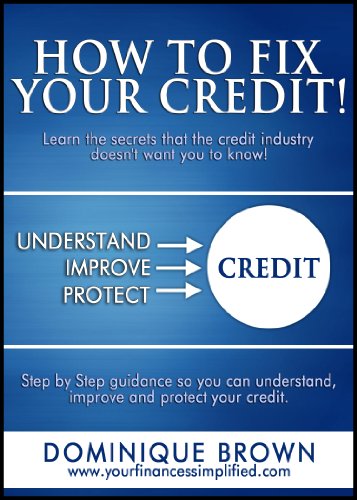From the Editor: This guest article contributed by Zach Ramsay
This is one of those amazing but true statistics – at the present time, there are over 110 million Americans who are affected to one degree or another by bad credit. This can make if difficult to obtain loans or purchase things on time, and it could even potentially affect a person’s ability to secure employment. However, for anyone who finds themselves in this situation, the good news is that bad credit can be repaired with enough time and intelligent effort.
Bad Credit Scores: Their Origin
There are different factors that help determine credit scores. The first, and most important, is borrower history. What credit bureaus like Equifax, TransUnion, and Experian look for in the reports they receive from creditors on individuals is proof that previous debts or bills have been paid completely and on time. If balances due have been outstanding for a long time, or turned over to collection agencies, or resulted in defaults, foreclosures, or bankruptcies, all of these will cause credit scores to go down.
Borrower repayment history is the most important determinant of a person’s credit score. However, there are other considerations that also have an impact. One is present levels of debt – if someone owes a lot, and their funds available to repay appear low, this will cause credit scores to go down. When people apply for credit from several different sources at the same time, the assumption is that this person may be on the verge of having financial problems, and this can negatively affect a credit rating. The length of credit history also matters a lot – a long credit history helps build a higher score, while a short history does not have as much of an impact. It is important to note that good activity increases a credit score just as bad activity reduces it, so low credit scores may just mean that a person has not done enough to build a higher score yet.
Improving a Low Score
While a higher credit score range is always better, the critical numbers (on the FICO scale used by the three important credit bureaus) are 700 and 800. Once a score drops below 700 an individual is likely to have problems securing credit in at least some situations, while a credit score below 600 will most probably be enough to veto any attempt a person might make to get new credit.Before taking action to improve a credit score, a free copy of a person’s credit report should be acquired from each of the three primary credit bureaus to make sure no mistakes have been made. Once it has been established that the information used to calculate a credit rating is accurate, then steps must be taken that can raise that rating naturally and organically.The first thing that must be done is to make arrangements to repay any outstanding debts that may currently exist. This may involve contacting creditors or collection agencies to make arrangements for more affordable repayment; but it is important to aggressively and proactively pursue whatever options are available to get debts repaid and black marks removed from a credit report as quickly as possible.
Good credit card activity is quite beneficial, and secured credit cards are available for those with low credit scores. If payments are made diligently and on time with these cards, after about two months credit scores will begin to improve. If someone with bad credit still has some older credit cards that are in good standing, it is better to keep them than cancel them, because the more credit a person has the greater their capacity to repay debts will be, and this can help credit ratings go up as debts go down.
Anything someone can do to show their repayment habits have changed is beneficial. In addition to making prompt payments for anything owed or bought on credit in the future, everyone should make sure that all of their good past credit activity is reflected on credit scores. In some instances, creditors may not have reported a person’s credit activity to the bureaus – local banks and credit unions, travel accounts, gas company cards, for example, may have kept the good news to themselves. Any good credit reports a person can have added to their credit report are beneficial, so creditors who have not sent information to Equifax, TransUnion, or Experian in the past should be asked to do so now and in the future.
Gimmicks are Not the Answer
There are plenty of sources out there who claim they have special knowledge that can help anyone improve their credit enough to move into a better credit score range. This may or may not be true; but one thing that is very clear is that there are no “tricks” for improving credit ratings. Correcting any mistakes or omissions that are holding down a credit score artificially, and paying back what is owed promptly and consistently for an extended period of time in the future are the only two ways that credit scores can be improved enough to make a significant impact on a person’s overall credit status.Zach Ramsay is a finance and investment blogger. Learn more about protecting your credit and earning extra income at his personal finance blog MONEYEDUP.
Like to Add a Guest Post?
This post was written by a guest writer. If you’d like to add a guest post in Money Hacker, please check out Write for Us page for details about how YOU can share your knowledge with our community.

